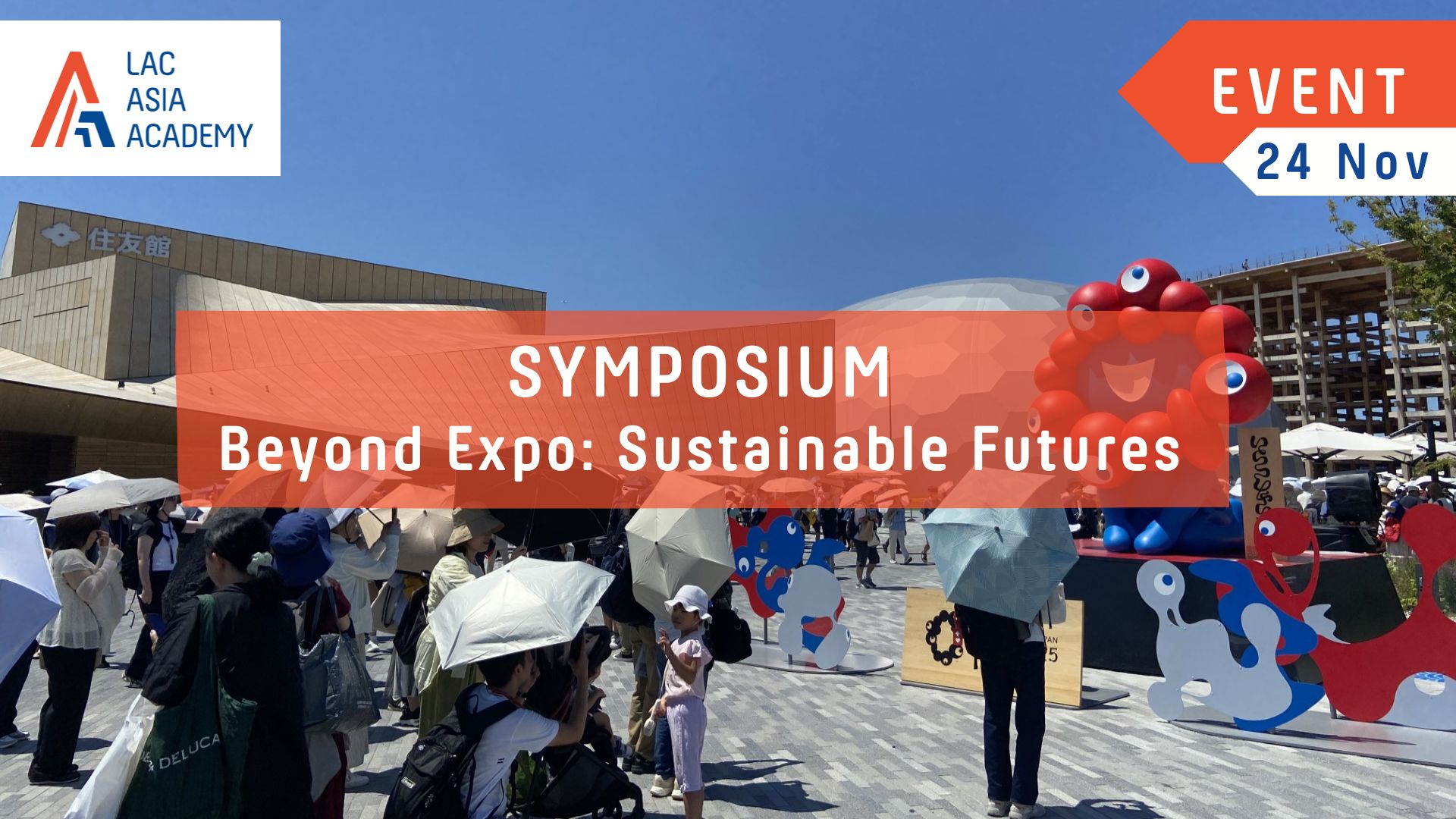In 2025, after 55 years, the World Exposition returned to Osaka. World Expositions have long provided a platform for the promotion of nation-branding, capitalism, innovation and technology. The politics of sustainability encompasses these core elements to enable governments and businesses alike to brand themselves as a leading and responsible stakeholders in managing the global commons, whilst simultaneously fostering new economic opportunities through technological development. Each World Expo provides an opportunity to showcase new approaches to address current global issues, not least the environment, and to shape the future. Yet, how innovative are these approaches and are they as sustainable as they purport to be? How were illusions of a sustainable future driven by capitalist innovation recycled at the Osaka World Expo 2025?
This symposium assembles a group of practitioners, academics, and students to examine three key areas:
- To foreground questions of environmental sustainability in EU-East Asia relations, particularly as they connect with Japan’s relations with the Netherlands.
- To comprehend how World Expositions have been embraced in East Asia and to set out how these events can be researched and what they can tell us about the region today.
- To compare and assess the statements, activities, and exhibits of the Dutch and Japanese governments and businesses to brand themselves as committed to a politics of sustainability at the Osaka World Expo 2025.
Registration for the event is required.
| Room | Herta Mohr 1.30 |
|---|---|
| 10:00-10:15 | Opening and Introduction (Lindsay Black, Leiden University) |
| 10:15-11:45 | Environmental sustainability in EU-East Asia relations:
|
| 11:45-13:00 | Lunch |
| Room | Lipsius 0.02 |
| 13:00-13:55 | Researching Mega Events in Asia & Beyond:
|
| 13:55-14:00 | Break |
| 14:00-15:15 | Expo Graduation Projects at Leiden:
|
| 15:15-15:25 | Coffee break |
| 15:25-16:45 | Environmental Stability and the Osaka Expo 2025:
|
| 16:45-17:00 | Conclusions & Online Learning Module (Katarzyna Cwiertka, Leiden University) |



